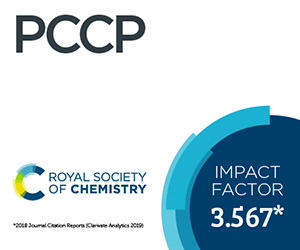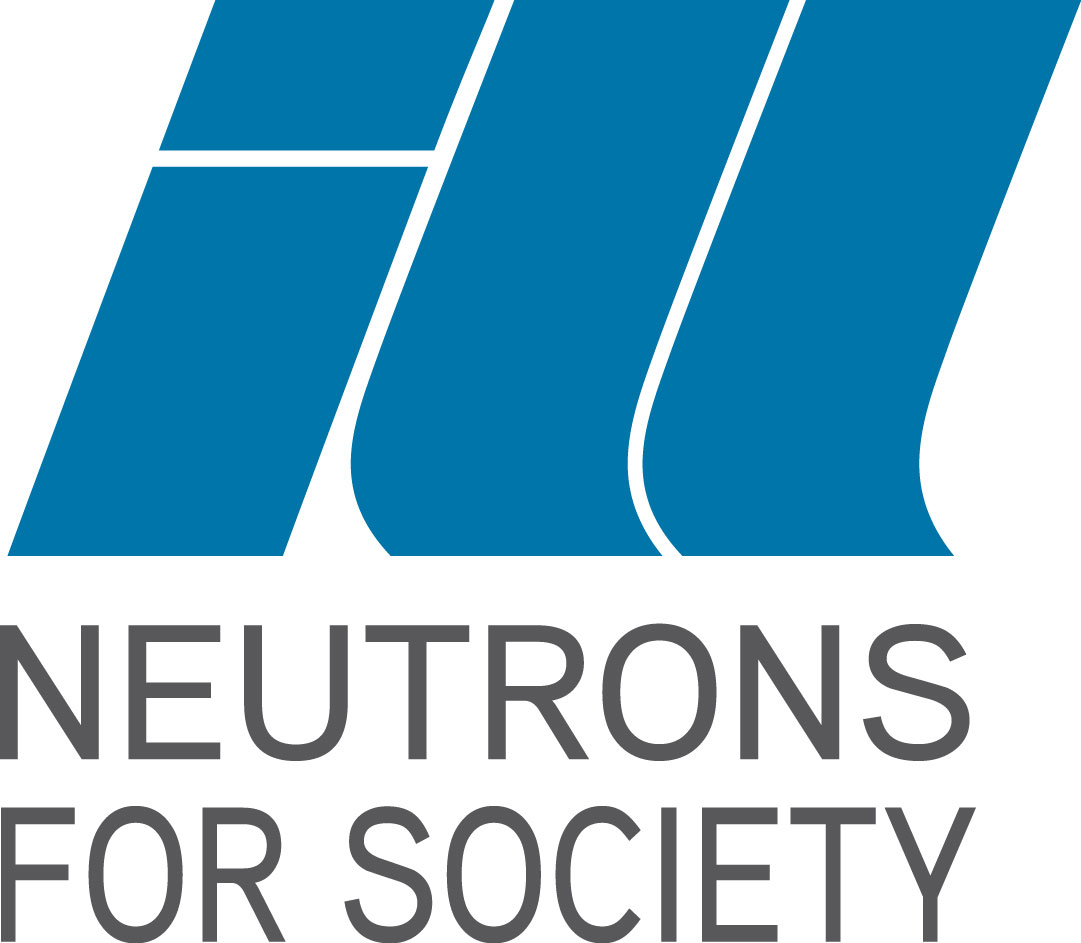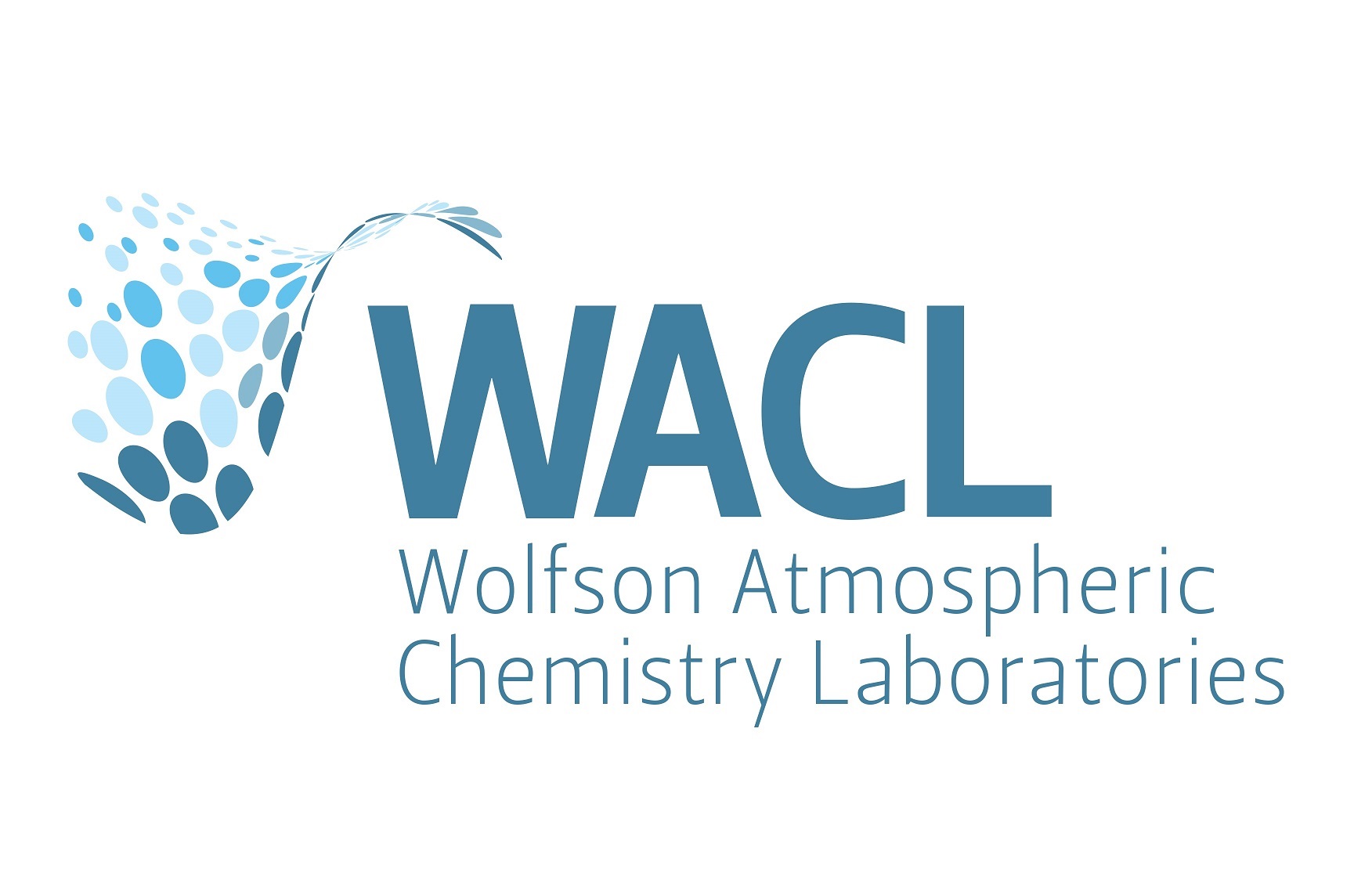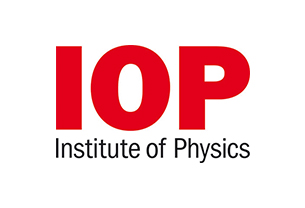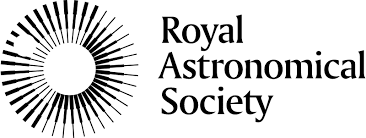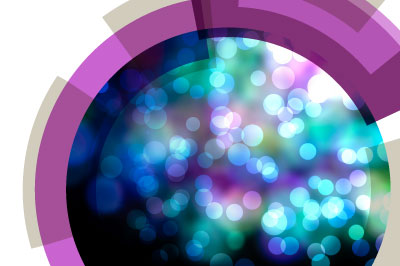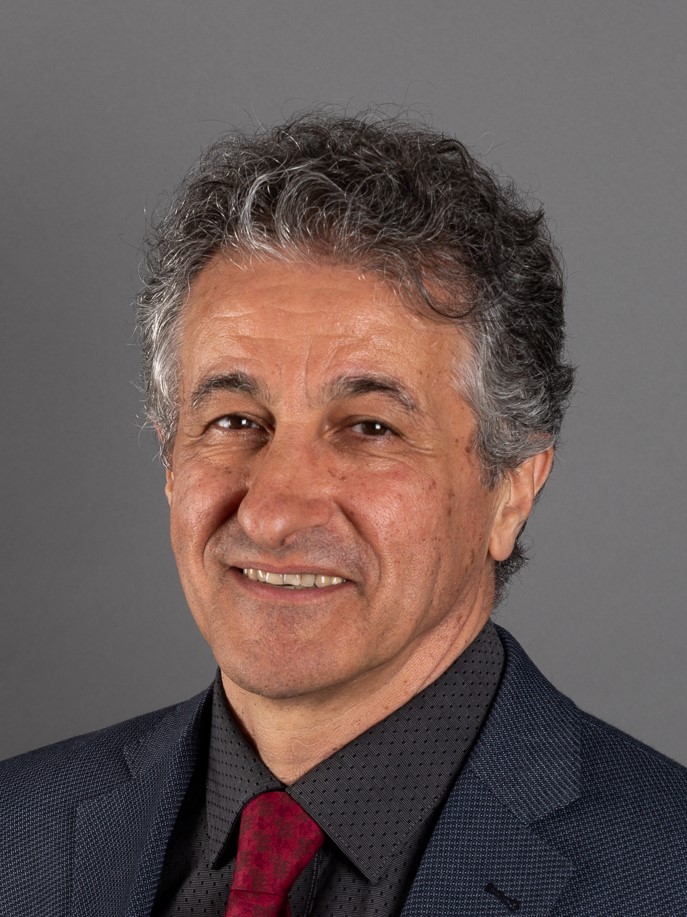 Majed Chergui, École Polytechnique Fédérale de Lausanne, Switzerland
Majed Chergui, École Polytechnique Fédérale de Lausanne, Switzerland
Majed Chergui FRSC, is professor of Chemistry and Physics at the Ecole Polytechnique Fédérale de Lausanne (EPFL) and Director of the Lausanne Centre for Ultrafast Science (LACUS). He received his BSc degree in Physics and Mathematics from Chelsea College (University of London) in 1977, his Ph.D. in Physics from the Université Paris-Sud (Orsay) in 1981 and his Habilitation from the Université Paris-Nord in 1986. He then spent six years at the Freie Universität Berlin till 1993, when he was appointed Full Professor of Physics at the Université de Lausanne, Switzerland. In 2003, he joined the Chemistry Institute of the EPFL.
Majed's research includes matrix-isolation spectroscopy of molecular systems to ultrafast spectroscopy of large molecules, biosystems and nanoparticles in solution, and bulk transition metal oxides. Most importantly, he is known for pioneering time-resolved X-ray spectroscopy in the picosecond, then the femtosecond time domain, which he successfully applied to a wide range of scientific questions. He also made pioneering contributions to the development of ultrafast deep-ultraviolet methods, in particular 2-dimensional spectroscopy and circular dichroism. In recognition for his contributions, he received several awards and prizes, which include the Humboldt Research Award 2010, the 2015 Earle K. Plyler Award of the American Physical Society, The 2015 Edward Stern Prize for Lifetime Achievements of the International X-ray Absorption Spectroscopy Society and the 2019 Liversidge Award of the Royal Society of Chemistry (UK). He is Fellow of the RSC, APS, OSA, EPS, ACA (American Crystallographic Association) as well as Foreign correspondent of the Spanish Royal Academy of Sciences.
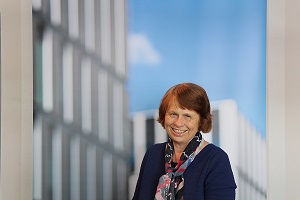 Ewine van Dishoeck, University of Leiden, Netherlands
Ewine van Dishoeck, University of Leiden, Netherlands
Ewine F. van Dishoeck is professor of molecular astrophysics at Leiden University, the Netherlands. She graduated at Leiden in 1984 and held positions at Harvard, Princeton and Caltech before returning to Leiden in 1990. The work of her group innovatively combines the world of chemistry with that of physics and astronomy to study the molecular trail from star-forming clouds to planet-forming disks. She has mentored several dozens of students and postdocs and has been heavily involved in planning new observational facilities such as the Herschel Space Observatory, the Atacama Large Millimeter Array and the James Webb Space Telescope. She has received many awards, including the 2000 Dutch Spinoza award, the 2015 Albert Einstein World Award of Science, and the 2018 Kavli Prize for Astrophysics. She is a Member or Foreign Associate of several academies, including that of the Netherlands, USA, Germany, Norway and Russia. Since 2007, she is the scientific director of the Netherlands Research School for Astronomy (NOVA). As of 2018, Ewine serves as the president of the International Astronomical Union (IAU).
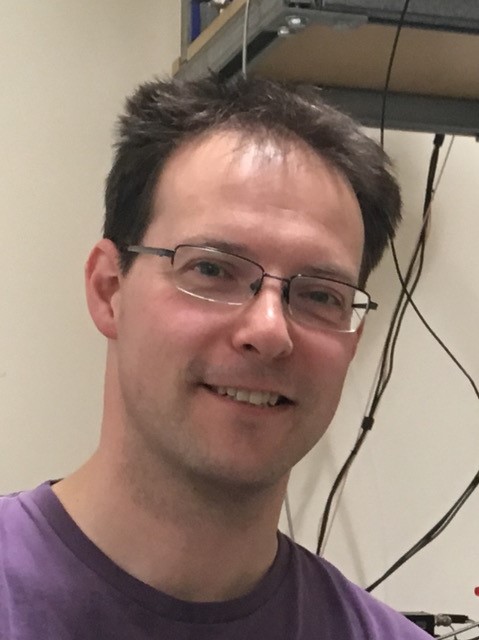 Roel Dullens, University of Oxford, United Kingdom
Roel Dullens, University of Oxford, United Kingdom
Roel Dullens obtained his MSc in Chemistry from the University of Utrecht (The Netherlands) in 2001. In 2005 he completed his PhD in Physical and Colloid Chemistry at the same University, under the supervision of Professor Willem Kegel. After that he joined the group of Professor Clemens Bechinger at the University of Stuttgart (Germany) as an Alexander von Humboldt Research Fellow to work on optical tweezing in colloidal systems. In August 2007, he was appointed as a University Lecturer at the Physical and Theoretical Chemistry Laboratory at the University of Oxford (United Kingdom), combined with a Tutorial Fellowship in Physical Chemistry at Lincoln College. In 2014, he became Associate Professor and, in 2016, he was promoted to his current position of Full Professor of Chemistry. He has been the recipient of an ERC Starting Grant in 2011 and an ERC Consolidator Grant in 2016, and has recently been awarded the 2019 Corday-Morgan Prize and the 2019 McBain Medal from the RSC. His research interests cover a wide range of topics in soft condensed matter, with an emphasis on colloidal systems. In particular, he combines the development of novel colloidal systems using synthetic colloid chemistry with state-of-the-art optical manipulation and imaging techniques to study fundamental problems in condensed matter science.
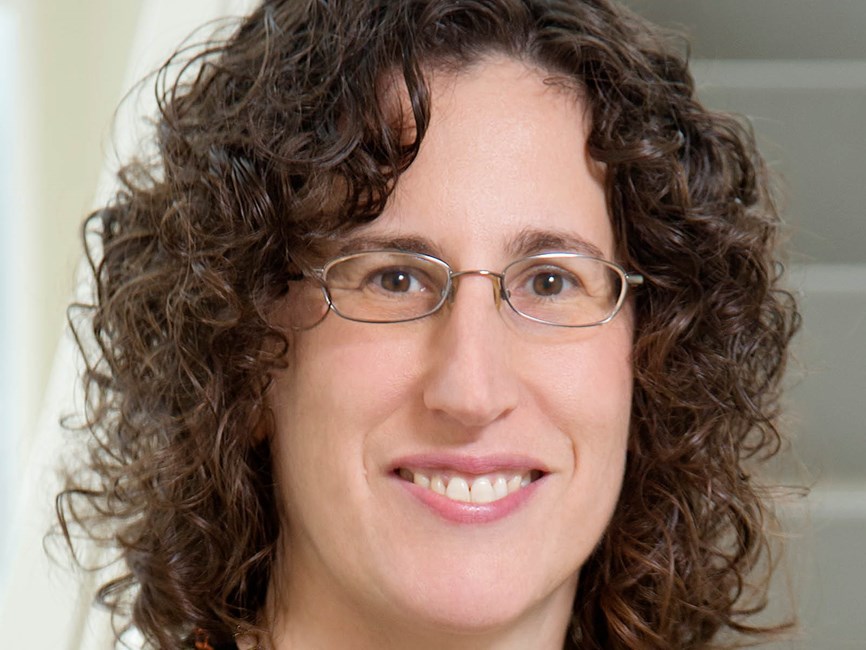 Sharon Hammes-Schiffer, Yale University, United States
Sharon Hammes-Schiffer, Yale University, United States
Sharon Hammes-Schiffer received her BA in Chemistry from Princeton University in 1988 and her PhD in Chemistry from Stanford University in 1993, followed by two years at AT&T Bell Laboratories. She was the Clare Boothe Luce Assistant Professor at the University of Notre Dame from 1995–2000 and then became the Eberly Professor of Biotechnology at The Pennsylvania State University until 2012, when she became the Swanlund Professor of Chemistry at the University of Illinois Urbana-Champaign. Since 2018, she has been the John Gamble Kirkwood Professor of Chemistry at Yale University.
Her research centres on the investigation of charge transfer reactions, proton-coupled electron transfer, nonadiabatic dynamics, and quantum mechanical effects in chemical, biological, and interfacial processes. Her work encompasses the development of analytical theories and computational methods, as well as applications to experimentally relevant systems.
She is a Fellow of the American Physical Society, American Chemical Society, American Association for the Advancement of Science, and Biophysical Society. She is a member of the American Academy of Arts and Sciences, the U.S. National Academy of Sciences, and the International Academy of Quantum Molecular Science. She was the Deputy Editor of The Journal of Physical Chemistry B and is currently the Editor-in-Chief of Chemical Reviews. She is on the Board of Reviewing Editors for Science and has served as Chair of the Physical Division and the Theoretical Subdivision of the American Chemical Society. She has over 275 publications, is co-author of a textbook entitled Physical Chemistry for the Biological Sciences, and has given more than 410 invited lectures, including 24 named lectureships.
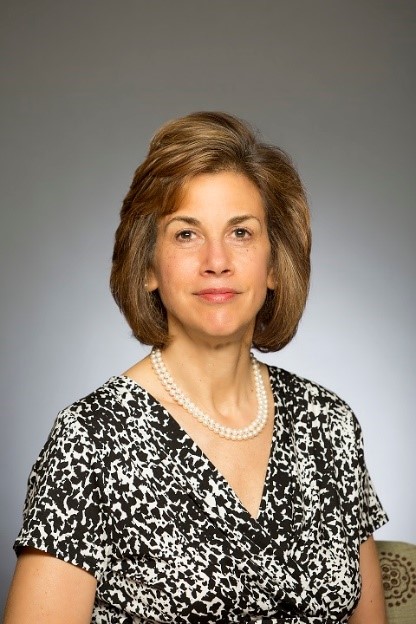 Marsha I. Lester, University of Pennsylvania, United States
Marsha I. Lester, University of Pennsylvania, United States
Marsha Lester has risen through the academic ranks at the University of Pennsylvania, where she is currently the Edmund J. Kahn Distinguished Professor in the Department of Chemistry of the School of Arts & Sciences. She completed a four-year term as Chair of the Department of Chemistry in 2009. Lester was Editor-in-Chief of The Journal of Chemical Physics from 2009-2018. Lester’s research group has developed innovative methods for stabilizing ‘entrance channel complexes’ and reaction intermediates of environmental significance. Her group has employed novel spectroscopic methods to rigorously characterize these important, yet previously uncharted, regions of chemical reaction pathways. Lester has been elected to the National Academy of Sciences and the American Academy of Arts & Sciences. In addition, she has been awarded the Herbert P. Broida Prize of the American Physical Society, the Garvan-Olin Medal of the American Chemical Society, and the Bourke Lectureship of the Faraday Division of the Royal Society of Chemistry.
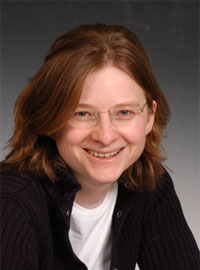 Rosalind Allen, University of Edinburgh, United Kingdom
Rosalind Allen, University of Edinburgh, United Kingdom
Rosalind Allen is a biological physicist who studies how bacteria grow, how they are inhibited by antibiotics, and how they evolve resistance to antibiotics. She uses a combination of computer simulations, theory and lab experiments in her work. Rosalind studied Natural Sciences (Chemistry) at Cambridge University, graduating in 1999, before obtaining a Master's degree in Chemistry from the University of Pennsylvania (2000). She then returned to Cambridge where she obtained her PhD in theoretical chemistry in 2003, under the supervision of Professor Jean-Pierre Hansen, simulating the dynamics of water molecules in nanopores. Rosalind did post-doctoral research as a Marie Curie Research Fellow at the FOM-AMOLF Institute in Amsterdam, in the group of Professor Pieter Rein ten Wolde, where she developed a novel way to simulate rare events. In 2005 she was awarded the RSC's Edward Harrison Memorial Prize. In 2006 she moved to the School of Physics and Astronomy at the University of Edinburgh, where she has been supported by fellowships from the Royal Society of Edinburgh, the Royal Society, and by an ERC grant. In Edinburgh she has focused her research on modelling bacteria, as well as developing the experimental component of her work.
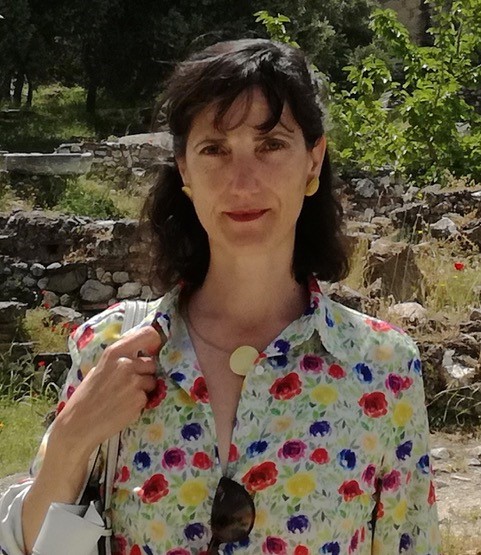 Arantxa Arbe, CSIC-UPV, Spain
Arantxa Arbe, CSIC-UPV, Spain
The scientific carrier of Arantxa Arbe (Research Professor of the Spanish National Research Council, CSIC, since 2009) has been closely linked to the Group of Polymers and Soft Matter in San Sebastian (Spain). There she carried out her PhD (1990-1994), under the supervision of Prof. Colmenero, combining dielectric spectroscopy with neutron scattering techniques for the investigation of the dynamics of linear homopolymers. In her post-doctoral stay in the Forschungszentrum Jülich (Germany) (1994-1996), she acquired a solid background in the use of scattering techniques. Her achievements during that period were recognized with the Young Scientists Award of the European Neutron Scattering Association (1996). Later, she translated her experience to the San Sebastian group, in which she integrated as responsible for the application of scattering techniques (first, neutrons, and later, also X-rays). These methods constitute one of the main pillars of the well-known methodology developed in this group, that combines experimental techniques (relaxation, calorimetry, microscopy and scattering) and computer simulations (coarse grained and fully atomistic). Along her carrier, she has investigated structural and dynamical properties of polymers systems of increasing complexity (homopolymers, polymer blends, solutions, nano-composites, nano-structured systems, polymeric nano-particles, etc). Her scientific achievements have given rise to 175 publications in international journals, including five reviews. She has also participated as a member in the Scientific Advisory Committee of prestigious neutron scattering research centers (like the Heinz Maier-Leibnitz Zentrum in Garching, the European Spallation Source, ESS, in Lund, and the Institute Laue-Langevin in Grenoble), and in diverse proposal selection panels in neutron facilities, sometimes as chairperson.
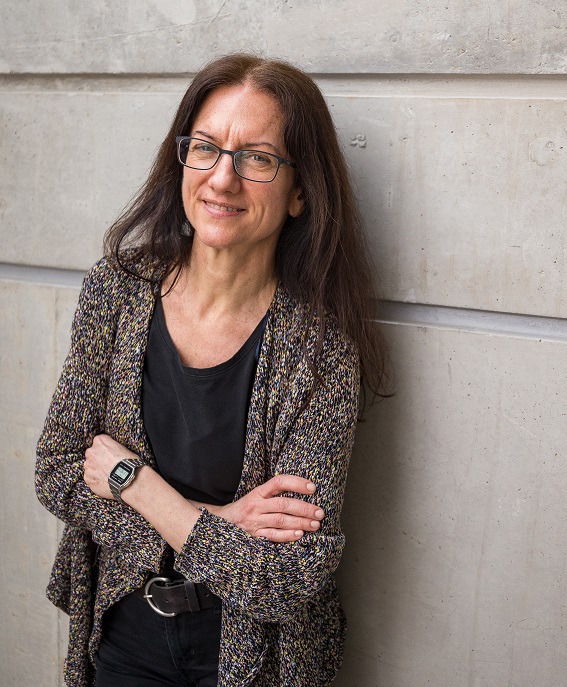 Paola Caselli, Max Planck Institute, Germany
Paola Caselli, Max Planck Institute, Germany
Paola Caselli studied Astronomy at the University of Bologna, where she graduated in 1990. In 1994 she obtained the PhD in Astrophysics at the University of Bologna, after spending nine months as visiting student at the Ohio State University with Professor Eric Herbst and two years at the Harvard Smithsonian Center for Astrophysics (CfA) as a pre-doctoral fellow with Professor Phil Myers. After a Postdoctoral Fellowship at CfA, in 1996 she became Researcher at the Arcetri Astrophysical Observatory in Florence, where she remained until 2005. In 2006 and 2007 she was Visiting Scholar in the Department of Astronomy, Harvard University, and in 2007 she became Professor of Astronomy at the School of Physics and Astronomy, University of Leeds. Since 2014, she is Director of the Centre for Astrochemical Studies at the Max-Planck-Institute for Extraterrestrial Physics and Honorary Professor at the Ludwig Maximilian University of Munich.
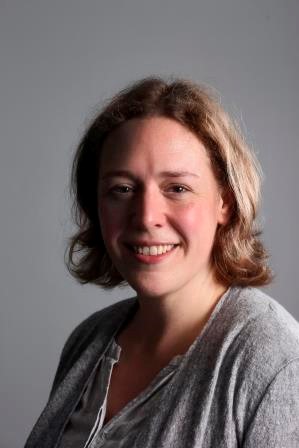 Jenny Clark, University of Sheffield, United Kingdom
Jenny Clark, University of Sheffield, United Kingdom
Research Interests
I am interested in understanding the physics of carbon-based pi-conjugated materials from organic semiconductors to biological materials using a range of spectroscopic techniques.
Current Position
2015-present part-time VC Research Fellow, University of Sheffield, UK.
Research Experience
2009-2013 Royal Society Dorothy Hodgkin Fellow, Cambridge University, UK.
2009 Visiting Scholar, Hyderabad University, India.
2007-2009 Postdoctoral Research Fellow, Politecnico di Milano, Italy. Supervisor: Prof. Guglielmo Lanzani
2003-2007 PhD in Physics, Cambridge University. Supervisor: Prof. C. Silva.
Career Breaks
2012-2015 Maternity leave (2 children)
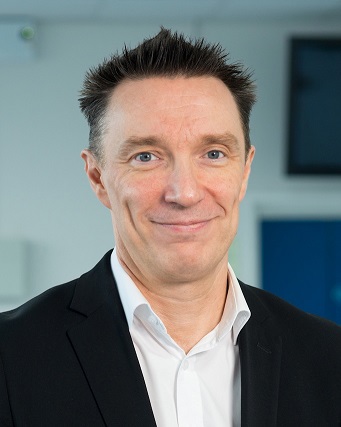 Andy Cooper, University of Liverpool, United Kingdom
Andy Cooper, University of Liverpool, United Kingdom
Andy is a Nottingham graduate (1991), also obtaining his Ph.D there in 1994. After his Ph.D, he held a 1851 Fellowship and a Royal Society NATO Fellowship at the University of North Carolina at Chapel Hill, USA, and then a Ramsay Memorial Research Fellowship at the University of Cambridge. In 1999, he was appointed as a Royal Society University Research Fellowship in Liverpool. In 2007, he was the founding Director of the Centre for Materials Discovery—the forerunner of the MIF—which cemented a long-term strategic collaboration between Unilever and the University of Liverpool. He was Head of Chemistry and then the first Head of the School of Physical Sciences in the period 2007-2012, during which time he served on the University Council. In 2017, he co-founded a spin-out company, Porous Liquid Technologies, with collaborators at Queens University Belfast, based on an entirely new class of material, porous liquids, invented in the UK as part of an EPSRC-funded project (Nature, 2015, 527, 216).
Andy led the bid to establish the Materials Innovation Factory (MIF) via the UK Research Partnerships Infrastructure Fund and he is its first Academic Director. He is also the Director of the £10 M Leverhulme Centre for Functional Materials Design. His main research interests are organic materials, supramolecular chemistry, and materials for energy production and molecular separation. This is underpinned by a strong technical interest in high-throughput methods and robotics. A unifying theme in his research is the close fusion of computational prediction and experiment to discover new materials with step-change properties (Nature, 2011, 474, 367; Nature, 2017, 543, 657). This has involved close collaboration with Graeme Day, Professor of Chemical Modelling at the University of Southampton.
Andy was elected to the Royal Society in 2015. He has been awarded the Macro Group Young Researchers Award (2002), the RSC Award in Environmentally Friendly Polymers (2005), the McBain Medal (2007), the Corday-Morgan Prize (2009), the Macro Group Award (2010), a Royal Society Wolfson Research Merit Award, the Tilden Prize (2014), the American Chemical Society Doolittle Award (2014) and the Hughes Medal (2019). He was also the 2015 MIT-Georgia Pacific Lecturer in Organic Chemistry. In both 2011 and 2014, Andy was named in a Thomson Reuters list as one of the Top 100 materials scientists of the last decade. He was also named in the more recent 2017 Clarivate Highly Cited list in the field of chemistry. He was awarded an ERC Advanced Investigators grant in 2012 (RobOT). In 2015, he was appointed as a Consultant Professor in Hauzhong University of Science & Technology, China. He was also appointed as an Honorary Professor at East China University of Science and Technology, Shanghai, in 2017
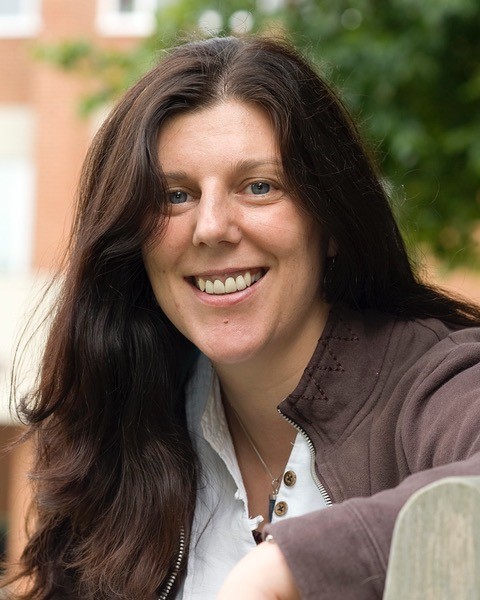 Hazel Cox, University of Sussex, United Kingdom
Hazel Cox, University of Sussex, United Kingdom
Hazel Cox is a Professor of Computational and Theoretical Chemistry at the University of Sussex. She obtained a BSc in Mathematics from the University College of North Wales and a D.Phil. in Mathematics/Chemistry from the University of York, before joining the Chemistry department at the University of Sussex as a postdoctoral fellow. After the award of two research fellowships: a Royal Society Dorothy Hodgkin Research Fellowship and an EPSRC University Research Fellowship, she took up a position as Lecturer, then Senior Lecturer, and in 2018 was appointed Professor. Her research interests involve using quantum chemistry to determine the underlying chemical and physical properties responsible for the structure, reactivity and spectroscopy of few-particle Coulomb systems and inorganic complexes. She served as Associate Editor (Chemistry) for the Royal Society Open Science journal (2014-2019) and is editorial board member of Advances in Quantum Chemistry. She is the elected UK representative and a member of the Board of Directors for the International Society for Theoretical Chemical Physics, and a Fellow of the Royal Society of Chemistry.
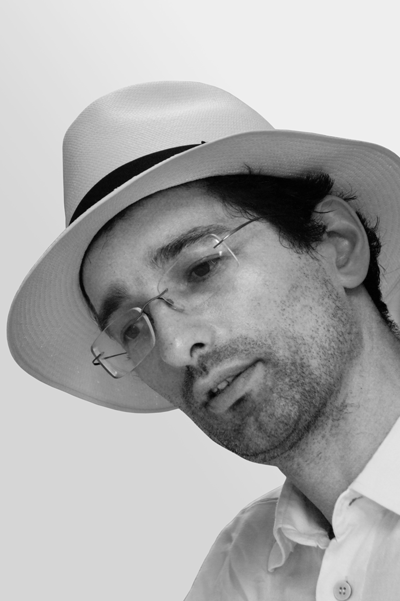 Gábor Csányi, University of Cambridge, United Kingdom
Gábor Csányi, University of Cambridge, United Kingdom
Gábor Csányi studied mathematics in Cambridge, graduating in 1994. He obtained a doctorate in computational physics from the Massachusetts Institute of Technology in 2001, after which he returned to Cambridge as a postdoc in the Cavendish Laboratory, working with Mike Payne. He joined the faculty of the Engineering Laboratory in 2007, where he is now Professor of Molecular Modelling. He is interested in computer simulation of materials on the atomic scale, particularly fitting interatomic potentials using machine learning techniques, but also molecular dynamics, statistical mechanics, optimisation and sampling.
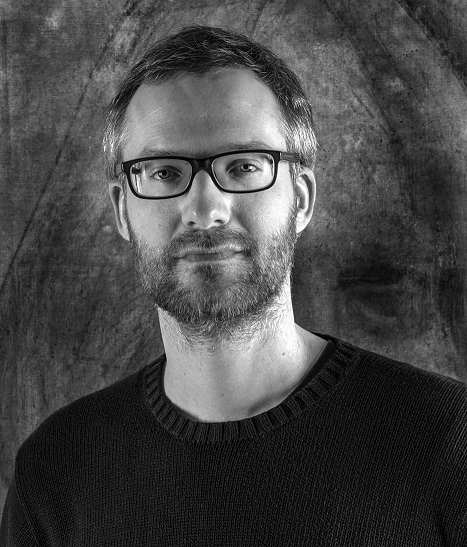 Basile Curchod, Durham University, United Kingdom
Basile Curchod, Durham University, United Kingdom
Basile F. E. Curchod was born in Vevey (Switzerland). He received his PhD in 2013 from the Ecole Polytechnique Fédérale de Lausanne (EPFL, Switzerland), under the direction of Dr. Ivano Tavernelli and co-direction of Prof. Ursula Roethlisberger. After a short stay in the laboratory of Prof. Clémence Corminboeuf (EPFL), he was awarded a Swiss Early.PostDoc grant to join in 2014 the group of Prof. Todd J. Martínez at Stanford University (USA). In December 2015, he began a short postdoctoral stay in the Theory Group directed by Prof. Eberhard K. U. Gross, at the Max Planck Institute in Halle (Germany).
In May 2016, he joined the Centre for Computational Chemistry at the University of Bristol (UK) as a Marie Skłodowska-Curie Fellow, working with Dr. David R. Glowacki. In November 2017, he became Assistant Professor in Theoretical Chemistry at Durham University (UK) and secured an ERC Starting Grant in September 2018.Basile's research focuses on the development and application of theoretical methods to simulate the dynamics of molecules beyond the Born-Oppenheimer approximation (www.in-silico-photochem.com).
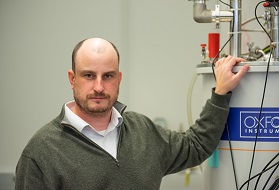 William Gannon, University of Kentucky, United States
William Gannon, University of Kentucky, United States
Dr. William J Gannon is originally from Alexandria, Virginia near Washington DC in the United States. He has a Bachelor of Science degree from the University of Michigan in Physics, awarded in 2005 and a PhD in Physics from Northwestern University, awarded in 2013 after working for Professor Bill Halperin. Dr. Gannon became a postdoc with Professor Meigan Aronson from 2013 through 2019, first at Stony Brook University and Brookhaven National Laboratory, then at Texas A&M University, and finally at the Stewart Blusson Quantum Matter Institute at the University of British Columbia in Vancouver, British Columbia, Canada. Dr. Gannon joined the faculty of the Department of Physics and Astronomy at the University of Kentucky as an Assistant Professor in August, 2019. His research interests include neutron scattering, low dimensional magnetism, correlated electron physics, and crystal growth of novel magnetic materials.
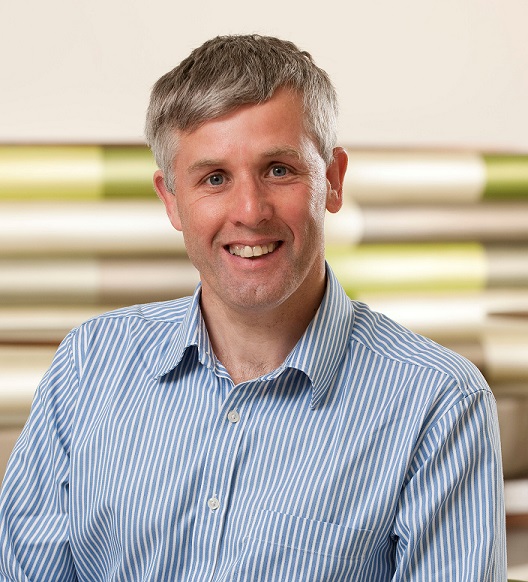 Dwayne Heard, University of Leeds, United Kingdom
Dwayne Heard, University of Leeds, United Kingdom
Dwayne Heard is Professor of Atmospheric Chemistry at the University of Leeds. He received his B.A. in Chemistry (1986) and D. Phil. in Physical Chemistry (1990) from the University of Oxford, undertook postdoctoral research at SRI International, California, and was a lecturer in the School of Chemistry at Macquarie University, Sydney. He moved to Leeds in 1994 where he held a Royal Society University Research Fellowship and was Head of the School of Chemistry from 2009-2013. He was a Visiting Fellow at JILA, University of Colorado in 2000. His research interests include quantitative field measurements of the hydroxyl radical in the atmosphere, laboratory and chamber studies of the kinetics and photochemistry of gas phase and aerosol processes, and the use of a pulsed Laval nozzle apparatus to study the kinetics of reactions at very low temperatures relevant to the interstellar medium and planetary atmospheres. He received the Environment Prize from the Royal Society of Chemistry in 2017.
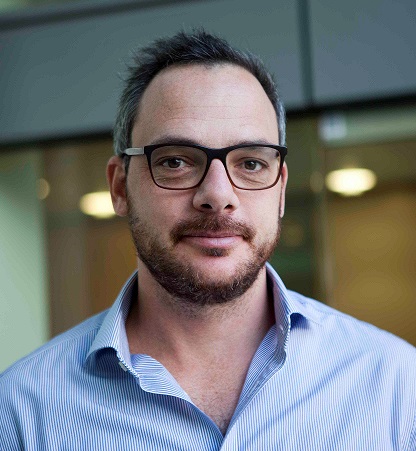 Philipp Kukura, University of Oxford, United Kingdom
Philipp Kukura, University of Oxford, United Kingdom
Philipp Kukura is a Professor of Chemistry at the University of Oxford, leading an interdisciplinary research group supported by ERC Starting and Consolidator grants that focusses on the development and application of new optical methodologies to study biomolecular structure, dynamics and interactions. Recent awards include those by the RSC (Harrison-Meldola 2011 and Marlow 2015), the European Biophysical Society Association (Young Investigator Medal 2017), a Royal Society Wolfson Research Merit Award (2018), the Klung-Wilhemy Award (2018) and a UK Blavatnik Award Laureate (2019).
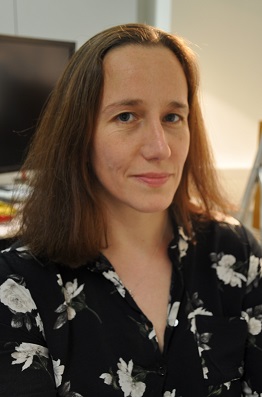 Gail McConnell, University of Strathclyde, United Kingdom
Gail McConnell, University of Strathclyde, United Kingdom
Professor Gail McConnell is Chair of Biophotonics at the Department of Physics at the University of Strathclyde. Following a first degree in Laser Physics and Optoelectronics (1998) and PhD in Physics from the University of Strathclyde (2002), she obtained a Personal Research Fellowship from the Royal Society of Edinburgh (2003) and a Research Councils UK Academic Fellowship (2005), securing a readership in 2008. The work in Gail’s group involves the design, development and application of linear and nonlinear optical instrumentation for biomedical imaging, from the nanoscale to the whole organism. She is a Fellow of the Royal Society of Edinburgh, a Fellow of the Institute of Physics, and a Fellow of the Royal Microscopical Society, where she is also Chair of the Light Microscopy Committee since August 2019.
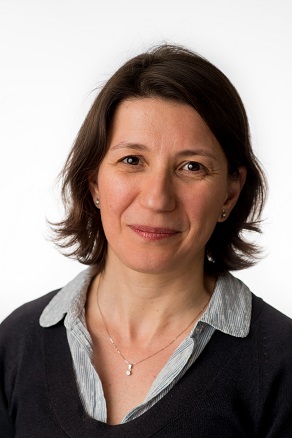 Maria Sanz, King's College London, United Kingdom
Maria Sanz, King's College London, United Kingdom
María Eugenia Sanz obtained her PhD in Chemistry from University of Valladolid under the supervision of Prof. J. C. López and Prof. J. L. Alonso. After being a postdoctoral fellow at the Harvard-Smithsonian Center for Astrophysics with Prof. P. Thaddeus, she secured a Ramon y Cajal Fellowship and moved back to University of Valladolid, where she was later appointed Profesor Titular. During this period she also spent a year as an academic visitor in the group of Prof. H. Fielding at UCL with a Jose Castillejo Fellowship. She moved to King’s College London in 2012, as part of the relaunch of the Chemistry department, where she is a Senior Lecturer in Physical Chemistry. Her research interests focus on the structural and conformational characterization of molecules of biological and environmental interest and their non-covalent interactions using rotational spectroscopy.
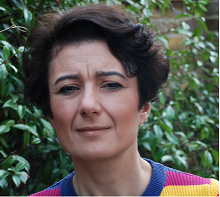 Serena Viti, Leiden University/UCL, United Kingdom
Serena Viti, Leiden University/UCL, United Kingdom
Serena Viti is a Professor of Molecular Astrophysics at Leiden University in the Netherlands (as well as also a Professor of Astrophysics at University College London). She obtained her PhD in 1997 from UCL in the area of molecular astrophysics applied to low mass stars. After her PhD she started working in the field of star formation and astrochemistry. After a couple of postdoctoral fellowships in UK and abroad, she obtained a STFC Advanced Fellowship and moved back to UCL in 2003 where she became the Head of the Astrophysics Group in 2016. In 2020, she moved to Leiden University to take up a Professorship in Molecular Astrophysics. She has been a Royal Astronomical Society council member,
the secretary of the European Astronomical Society and has served on several international and national panels and committees. She was awarded an Advanced ERC in 2019. Her research interests span a wide range of topics but are all centred around the role of molecules in space, especially in the dense gas of the interstellar medium and star forming regions. Her recent work concentrates on the interpretation of molecular observations in extragalactic regions, and on devising novel techniques for astrochemistry involving machine learning.
























